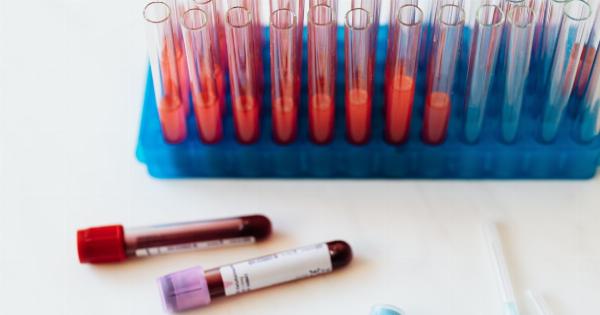In the ever-evolving landscape of oncology care, effective collaboration between patients and their healthcare providers is crucial.
The ‘AVGI’ approach – an acronym for Active communication, Virtual technology, Genetic testing, and Individualized treatment plans – offers a comprehensive framework to enhance patient-oncologist collaboration and improve treatment outcomes.
Active Communication: The Key to Empowered Patients
Active communication lies at the heart of successful patient-oncologist collaboration. By fostering a relationship built on trust and open dialogue, oncologists can empower patients to actively participate in their own care. This can be achieved through:.
1. Shared Decision-Making
Shared decision-making involves engaging patients in the treatment planning process, educating them about the available options, and considering their preferences and values.
When patients feel heard and involved, they are more likely to adhere to their treatment plans and achieve better outcomes.
2. Effective Communication Strategies
Oncologists should employ clear and jargon-free communication to ensure patients understand their diagnoses, treatment options, and potential side effects.
This can involve the use of visual aids, written materials, and plain language explanations, allowing patients to make well-informed decisions about their treatment journey.
Virtual Technology: Fostering Connection Beyond the Clinic
In the digital age, virtual technology has revolutionized the way patients and oncologists interact, providing opportunities for enhanced collaboration. By embracing virtual tools, healthcare providers can:.
3. Telemedicine
Telemedicine enables patients to consult with their oncologists remotely, eliminating the need for frequent in-person visits.
This not only reduces the burden of travel and waiting times but also facilitates regular communication, ensuring patients receive timely guidance and support throughout their treatment.
4. Online Support Groups
Virtual support groups offer a platform for patients to connect with others facing similar challenges. These communities provide a sense of belonging, emotional support, and valuable insights from individuals who have firsthand experience with cancer.
Encouraging patients to join such groups can improve their overall well-being and help them cope with the emotional impact of their diagnosis.
Genetic Testing: Personalizing Treatment Approaches
Advances in genetic testing have transformed the field of oncology by allowing tailored treatment plans based on individual genetic profiles. By incorporating genetic testing into patient care, oncologists can:.
5. Identify Genetic Mutations
Genetic testing helps identify specific mutations that could be driving a patient’s cancer growth.
Armed with this information, oncologists can devise personalized treatment strategies targeting these mutations, leading to more effective and targeted therapies.
6. Determine Treatment Response
Genetic testing can also be used during treatment to assess the patient’s response.
By monitoring genetic changes in the tumor, oncologists can adjust the treatment regimen as needed, ensuring patients receive the most effective therapy throughout the course of their disease.
Individualized Treatment Plans: Optimizing Outcomes
The ‘AVGI’ approach emphasizes the importance of tailoring treatment plans to suit each patient’s specific needs and characteristics. By personalizing treatment, oncologists can:.
7. Consider Patient Preferences
Accounting for patient preferences and goals is vital in collaboratively developing a treatment plan.
Oncologists should involve patients in discussions about potential side effects, long-term effects, and quality of life considerations, ensuring that the chosen treatment aligns with the patient’s values and priorities.
8. Adapt to Changing Circumstances
Oncologists must regularly re-evaluate the treatment plans to accommodate any changes in the patient’s overall health or response to treatment.
By closely monitoring progress and adjusting strategies as necessary, oncologists can optimize outcomes and adapt to any challenges that arise.
Conclusion
The ‘AVGI’ approach, comprising active communication, virtual technology, genetic testing, and individualized treatment plans, serves as a robust framework to enhance patient-oncologist collaboration.
By incorporating these elements into practice, oncologists can empower patients, improve treatment outcomes, and ultimately transform the landscape of cancer care.






























